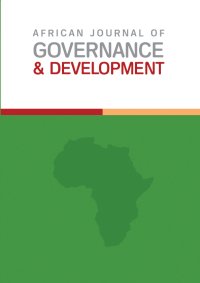African leaders and trust deficit culture: Power, politics, and the Nigerian polity under General Ibrahim B. Babangida (1985-1993)
Main Article Content
Abstract
The phenomenon of military coup d’états, a feature especially of Nigeria and African countries, became the institutionalised method for changing governments after independence in 1960. This cycle of military régimes supplanting civilian governments tagged itself as a ‘corrective’ form of governance aimed at bringing to an end the misrule, ineptitude and corruption of the preceding government. Paradoxically, military rule has proven to be an aberration, dysfunctional to political development and the epitome of corruption and human rights violations. This paper traces the heightened waves of military incursions, with particular emphasis on General Ibrahim Babangida’s regime, and the failures and successes of his administration so as to establish the appropriateness of the phrase “African leaders and the trust deficit culture within the context of Nigeria polity during the period under review”
Article Details

This work is licensed under a Creative Commons Attribution-NonCommercial-NoDerivatives 4.0 International License.
